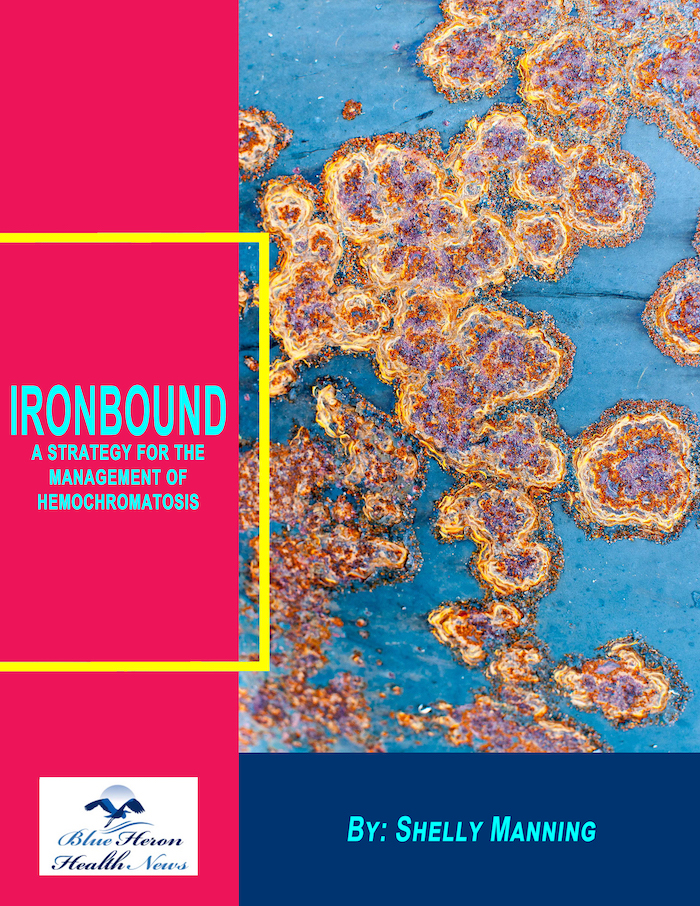
Ironbound™ A Strategy For The Management Of Hemochromatosis by Shelly Manning if you are suffering from the problems caused by the health condition of HCT due to excess amount of iron in your body then instead of using harmful chemical-based drugs and medications you are recommended to follow the program offered in Ironbound Shelly Manning, an eBook. In this eBook, she has discussed 5 superfoods and other methods to help you in reducing the level of iron in your body in a natural manner. Many people are benefited from this program after following it consistently.
How do heavy menstrual periods impact iron levels?
Heavy menstrual periods, also known as menorrhagia, can significantly impact iron levels in the body, leading to iron deficiency and potentially iron deficiency anemia. Here’s a detailed look at how heavy menstrual bleeding affects iron levels:
1. Blood Loss and Iron Depletion
Hemoglobin and Iron Content
- Hemoglobin: Hemoglobin, the protein in red blood cells that carries oxygen, contains iron. Each milliliter of blood loss corresponds to a loss of approximately 0.5 mg of iron.
- Iron Stores: The body maintains iron stores primarily in the form of ferritin in the liver, spleen, and bone marrow. Heavy menstrual bleeding can rapidly deplete these stores.
Quantifying Blood Loss
- Menorrhagia Definition: Menorrhagia is typically defined as blood loss exceeding 80 milliliters per menstrual cycle. Normal menstrual blood loss is about 30-40 milliliters per cycle.
- Impact: Women with menorrhagia may lose double or triple the normal amount of blood, leading to substantial iron loss over time.
2. Increased Iron Requirements
Compensatory Mechanisms
- Increased Demand: To compensate for the lost blood, the body increases the production of red blood cells, which requires additional iron.
- Dietary Needs: Women with heavy menstrual periods need to consume more iron to meet this increased demand and to replenish lost stores.
3. Iron Deficiency Development
Depletion of Iron Stores
- Initial Stages: In the early stages of iron deficiency, the body depletes its iron stores without significant symptoms.
- Progression: As iron stores become exhausted, the production of hemoglobin is affected, leading to iron deficiency anemia.
Symptoms of Iron Deficiency Anemia
- Fatigue and Weakness: Reduced hemoglobin levels lead to decreased oxygen delivery to tissues, causing fatigue and weakness.
- Pale Skin: Pallor is common due to reduced red blood cell count.
- Shortness of Breath: Insufficient oxygen transport can cause shortness of breath, especially during physical activities.
- Heart Palpitations: The heart may beat faster to compensate for the reduced oxygen-carrying capacity of the blood.
4. Risk Factors for Menorrhagia and Iron Deficiency
Underlying Conditions
- Uterine Fibroids: Benign growths in the uterus can cause heavy menstrual bleeding.
- Hormonal Imbalances: Conditions like polycystic ovary syndrome (PCOS) can lead to irregular and heavy periods.
- Bleeding Disorders: Disorders like von Willebrand disease affect blood clotting and can cause heavy menstrual bleeding.
- Endometriosis: This condition involves the growth of uterine lining tissue outside the uterus, leading to heavy bleeding.
Lifestyle and Diet
- Nutritional Deficiencies: Poor dietary intake of iron can exacerbate the risk of deficiency.
- Adolescence: Young women may be at higher risk due to the combination of rapid growth and heavy menstrual periods.
5. Diagnosis and Management
Diagnosis
- Medical History: A thorough history, including menstrual patterns and symptoms, helps in diagnosing menorrhagia and assessing its impact on iron levels.
- Blood Tests: Tests such as complete blood count (CBC), serum ferritin, and serum iron levels help diagnose iron deficiency and anemia.
- Additional Tests: Ultrasound or other imaging may be used to identify underlying causes of heavy bleeding, such as fibroids or polyps.
Treatment
- Iron Supplementation: Oral or intravenous iron supplements can help replenish iron stores. Oral supplements are commonly used, but intravenous iron may be necessary for severe deficiency or when oral supplements are not well tolerated.
- Dietary Changes: Increasing the intake of iron-rich foods (e.g., red meat, poultry, fish, legumes, fortified cereals) and foods that enhance iron absorption (e.g., vitamin C-rich fruits and vegetables) is crucial.
- Managing Menorrhagia: Treatments to reduce menstrual bleeding may include:
- Hormonal Therapy: Birth control pills, hormone-releasing intrauterine devices (IUDs), or other hormonal treatments can regulate menstrual cycles and reduce bleeding.
- Nonsteroidal Anti-Inflammatory Drugs (NSAIDs): NSAIDs like ibuprofen can reduce menstrual blood loss and alleviate pain.
- Surgical Options: Procedures like endometrial ablation or myomectomy can be considered for severe cases, particularly if fibroids are present.
- Monitoring: Regular follow-up and monitoring of iron levels and menstrual patterns are essential to ensure effective management and prevent recurrence.
Conclusion
Heavy menstrual periods can significantly impact iron levels by causing substantial blood loss, leading to iron deficiency and iron deficiency anemia. Effective management includes diagnosing and treating underlying causes of menorrhagia, iron supplementation, dietary adjustments, and possibly hormonal or surgical interventions. Addressing these factors helps prevent iron deficiency and improve overall health and quality of life for affected women.
Ironbound™ A Strategy For The Management Of Hemochromatosis by Shelly Manning if you are suffering from the problems caused by the health condition of HCT due to excess amount of iron in your body then instead of using harmful chemical-based drugs and medications you are recommended to follow the program offered in Ironbound Shelly Manning, an eBook. In this eBook, she has discussed 5 superfoods and other methods to help you in reducing the level of iron in your body in a natural manner. Many people are benefited from this program after following it consistently.